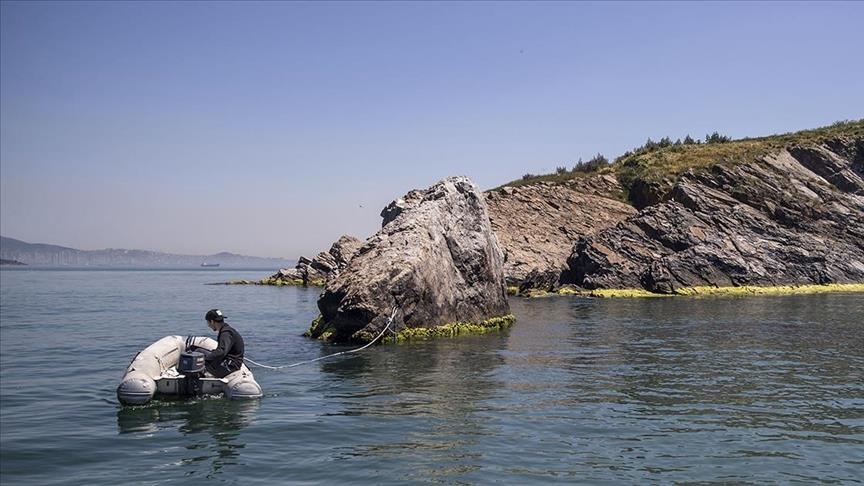Some marine species reappear in Sea of Marmara after long time
Numbers of lobsters, some squid species increased in Marmara lately, say marine experts

ISTANBUL
Some marine species, which have not been observed for many years in the Sea of Marmara, reappeared as the measures taken bore fruit, according to Turkish marine experts.
"Restricting discharges, controlling illegal hunting or limiting hunting, and expanding the protection areas help the spread and reproduction of species and increasing these species. We are getting the results almost immediately,” Ahsen Yuksek, an academic at Istanbul University, told Anadolu Agency.
Yuksek stressed that the inspections in the Sea of Marmara have increased and that the measures are strictly implemented in terms of both pollution and fisheries.
There are still great dangers, she said, adding that the ecosystem is in a “sharp cycle, like a knife-edge,” that something unexpected may always happen.
Underlining that they received photos of sea urchins and sponges a short time ago, she said tuna fish has been rarely observed in the Sea of Marmara, which was hard to see since the late 1980s.
If given the opportunity, rare species could be more visible, she said, adding that lobsters, which are under primary protection and threat, could be seen in the Sea of Marmara at 12 meters (39 feet).
She added that they found sole and sea bream eggs in the Golden Horn, and the octopus that was seen in the south before.
Some marine species, which have not been observed for many years in the Sea of Marmara, reappeared as the measures taken bore fruit https://t.co/s2C7z3rrrt pic.twitter.com/lb28n7n8wH
“The octopus normally lives in areas close to the coast if it does not see a threat. It is a species that exists if it does not have a nesting area or food shortage,” she said, adding that octopuses can multiply rapidly if given rest.
Eda Topcu Eryalcin, an academic at Istanbul University, said she expects a definite improvement if the decisions taken are fully implemented.
“Species grow much faster here compared to other regions. Their development is really fast. I think that when we reduce these pressures, there will definitely be an improvement,” Eryalcin said.
When we start to see the recovery in Marmara through data, we can start better restoration works for corals, she added.
"We've had the opportunity to see especially Mediterranean species such as octopus, lobster, some squid species, which were very common in the 1960s and 1970s, and species that were not seen in the Marmara and Black seas. Their numbers have increased a lot," she said.
Highlighting the importance of implementing and following the action plan, she said it is necessary to keep fishing and the anchor effect away from there.
After mucilage was observed in the Sea of Marmara, the decision to identify and declare some areas as the special environmental protection area was published in the Official Gazette. The decision was signed by Turkish President Recep Tayyip Erdogan last year, and the Sea of Marmara Action Plan was implemented.
*Writing by Gozde Bayar.
Anadolu Agency website contains only a portion of the news stories offered to subscribers in the AA News Broadcasting System (HAS), and in summarized form. Please contact us for subscription options.

